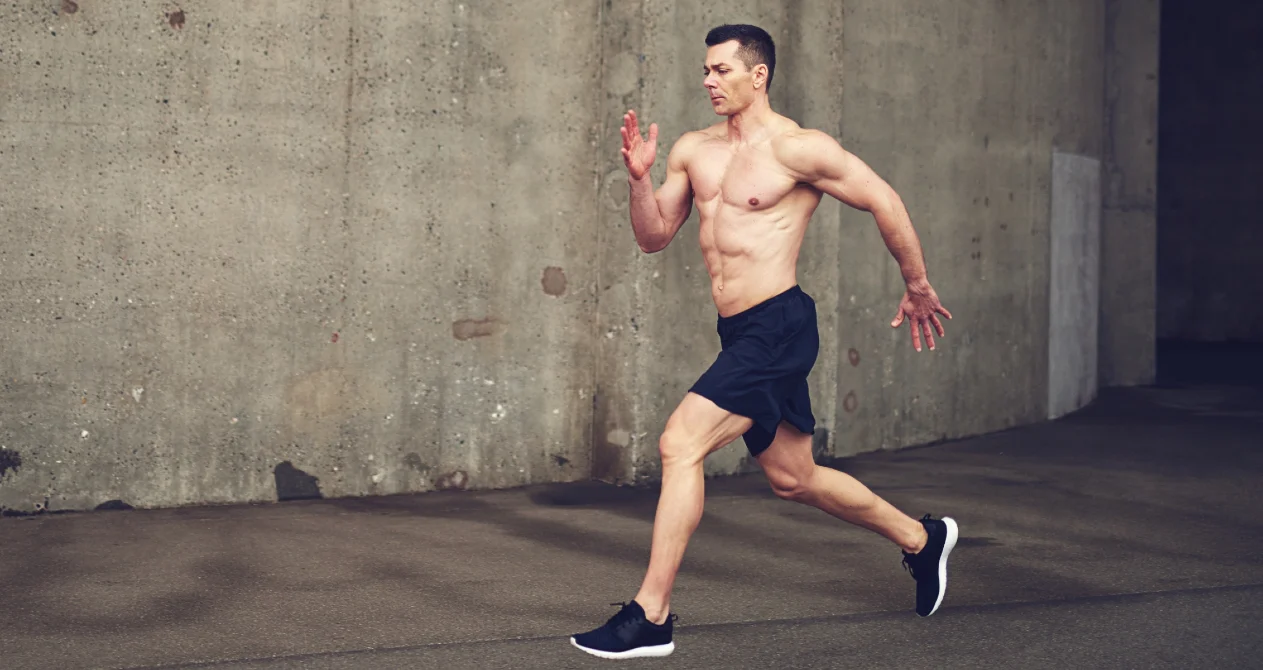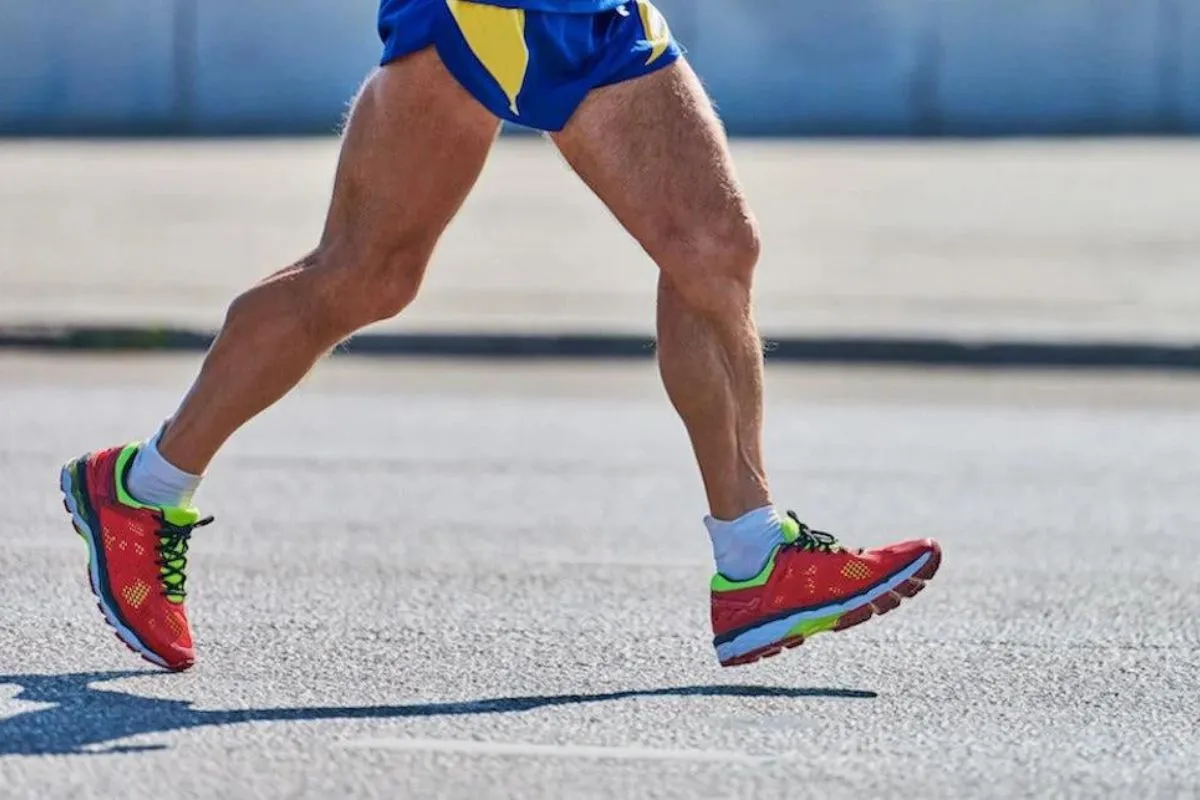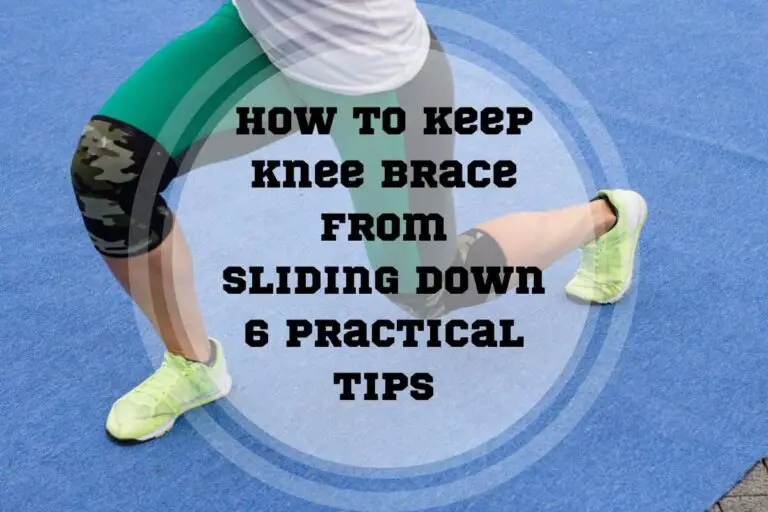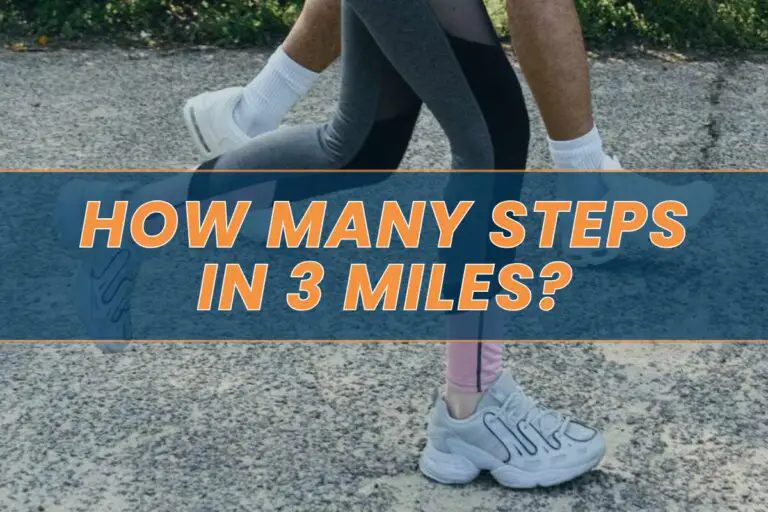5 Symptoms of Shoulder Pain While Running + 4 Treatment Tips
Are you experiencing shoulder pain while running? Statistics indicate that more than half of runners suffer from acute or chronic shoulder pain. Overstraining muscles, poor posture, and weak upper body are the most common causes for shoulder pain when running.
In this blog post, we will discuss how to prevent painful upper body issues while running and how to relieve the discomfort you may already be experiencing. Read on to learn everything you need to know about preventing and relieving pain in the shoulder when running!
What are the potential causes of Shoulder pain during running?
Shoulder pain from running can be managed with ice, stretching, and anti-inflammatory medications. Pain radiating down the arm or neck may indicate something more serious, such as an axillary nerve injury requiring immediate medical attention.
Why Upper Body Muscles Are Important for Runners
Upper body muscles help to support torso movement, maintain postural alignment, and improve running form when powering down hills and sprinting. The muscles of the torso play an important role in running by providing stability and balance throughout the core, as well as facilitating movement of the arms and legs. These muscles include:
- Abdominal muscles, such as the rectus abdominis
- External and internal obliques
- Transverse abdominis
- Quadratus lumborum
- Gluteal muscles, such as gluteus maximus and medius
- Spinae muscles in the back
The primary function of these muscle groups is to generate power during propulsion to help maintain a steady running gait. When properly engaged while running, they can also perform many additional functions:
- Provide support in maintaining an upright posture
- Allow hips to stay higher, which increases energy efficiency
- Improve alignment of body parts
- Counteract bad habits, like overpronation or exaggerated arm swing
- Protect joints
- Facilitate proper breathing
- Prevent injuries due to incorrect movement patterns

5 Symptoms of Shoulder Pain During or After Running
Read on to learn more about the symptoms of shoulder pain when running!
1. Aching or Sharp Pain in the Shoulder Joint
Experiencing aching or sharp pain in the shoulder joint while running can indicate several potential issues. This type of shoulder pain is often caused by incorrect running form, increased muscle guarding in the upper body, poor posture, aggressive heel striking, or weak upper body muscles.
Additionally, traumatic injury at any point from the neck down to the arm can result in changes to muscle function that produce discomfort during exercise. The axillary nerve, which passes through this region, may even become damaged or compressed due to physical trauma, leading to a restricted range of motion and severe chronic pain that requires medical intervention.
Adhesive capsulitis (frozen shoulder) is also characterized by intense pain in the affected area. It results from inflammation that causes soft tissue around the joint to become stiff and tight, with reduced mobility, swelling, or bruising.
2. Limited Range of Motion
Limited range of motion is a common symptom associated with shoulder pain during or after running. It can be caused by fractures, tissue inflammation or tears around the affected area, joint or ligament instability, arthritis, and even a shoulder dislocation.
Swelling and tissue damage from bone changes around the rotator cuff may also cause limited range of motion in runners’ upper body muscles.
3. Pain Radiating Down the Arm or into the Neck
This type of pain, often accompanied by swelling and limited range of motion, is usually caused by injury to the brachial plexus, which supplies sensation to the shoulder joint, arm and wrist
Common causes of pain include overexertion from sports-related activities (such as a repetitive throwing motion), postural issues causing tension in upper body muscles, incorrect arm swing, and weak torso muscles.
4. Swelling or Inflammation in the Shoulder Area
Swelling or inflammation in the shoulder area can limit movement and cause severe discomfort that may prevent you from taking part in your regular running.
The most common cause of shoulder pain during or after running is tendinosis, which occurs when long-term injury of the rotator cuff and biceps tendon lead to inflamed tissues. Other possible causes include poor posture, incorrect arm swing technique, aggressive heel striking, or weak upper body muscles leading to increased tension in this joint complex.

5. Difficulty in Lifting or Carrying Objects
Muscle fatigue or strain of the shoulder muscles may cause difficulty in lifting or carrying objects due to decreased strength, lack of proper form, impaired mobility, joint instability, and tenderness.
To prevent this issue, runners should incorporate strengthening exercises into their routines to build stronger muscles in the shoulders, which will help them maintain proper posture while running.
4 Reasons Why You Experience Shoulder Pain While Running and What to Do About It
The following are some of the underlying causes of shoulder pain while running:
1. Poor Running Form and Muscle Tension
Poor running form is a common cause of shoulder blade pain while running and can include issues such as forward-leaning posture and hunched shoulders near the ears. This misalignment of the body places extra stress on the neck, back, and shoulder muscles, leading to pain or discomfort while running.
Muscle tension in the upper body can cause shoulder cramps while running. Poor posture and form, hunching of shoulders near the ears, and excessive tension all contribute to difficulty with mobility, resulting in discomfort or tightness during your run.
If you find yourself experiencing jaw ache or neck pain and shoulder discomfort, this could indicate greater stress levels that manifest as physical pain. Without proper care and attention, this muscle strain can worsen over time.
2. Incorrect Arm Swing
Improper arm swing while running can cause shoulder pain due to overworking of the upper body and torso muscles around the shoulders. When you swing your arms too aggressively during running, it puts added strain on the muscle groups in the neck, back, and shoulder area, leading to tightness, tension, or soreness in the shoulders.
Additionally, if you tend to hunch one arm or slump when you raise the arms (such as leaning forward too much when running up hills), this adds more stress to your joints and the muscles surrounding them.
It’s important to maintain proper posture by keeping your head straight and ensuring that you swing both of your arms at even angles throughout every stride cycle. This allows all of the lower body joints to absorb impact symmetrically.
3. Weak Upper Body Muscles
Weak upper body muscles can contribute to shoulder pain and make running more difficult, especially over long distances. The main muscles involved are the rotator cuff group, consisting of four small muscles that provide stability for the shoulder joint when you move your arm in different directions.
If these muscles become weak, it affects your ability to maintain good posture and a steady arm swing during running. Other important factors include neck strength, chest strength, and back musculature. These all contribute to maintaining an upright posture throughout your run.
4. Aggressive Heel Striking
If your shoulders hurt when running, it may be the result of aggressive heel striking. Aggressive heel striking is when a runner’s foot hits the ground forcefully and results in too much impact in the heel area during running. This type of running technique causes injuries because it provides less shock absorption, leading to more strain on joints throughout the body.
This can also lead to overuse injuries and cause tension in muscles, tendons, and other soft tissues. Aggressive heel striking can also cause damage to the foot itself.

When to See a Doctor or Physical Therapist for Shoulder Pain
Runners need to recognize when shoulder pain may signal a more severe condition and seek medical attention if needed. Knowing when to visit a medical provider can minimize the risk of further injuries and help prevent chronic shoulder pain or other injuries.
Right shoulder pain while running can be a symptom of various disorders, including rotator cuff injuries, bursitis, tendinitis, arthritis, frozen shoulder, and labral tears. While not commonly associated with shoulder pain, a heart attack can sometimes cause discomfort or pain in left shoulder when running.
If you are experiencing persistent, worsening, or new onset shoulder pain that does not resolve with rest and other self-care, then it is time to see a doctor. A physician can evaluate your symptoms thoroughly to determine the cause of your discomfort.
After evaluation, there may be a need for medications such as anti-inflammatories or injections, physical therapy, or even surgery. The earlier you catch your shoulder pain and get treatment, the better your outcome will likely be in terms of reducing disability and preventing future problems.
Subscribe to Our Running Newsletter!
Get free running tips from renowned professional athletes and discounts from top-notch brands.
4 Ways to Treat and Relieve Shoulder Pain During or After Running
Different forms of treatment can be used to reduce and relieve shoulder pain. Let’s discuss them in detail:
1. Relax While Running
Relaxing while running can be a very effective way for runners to deal with shoulder pain. Stress and tension in your body, especially in the neck and shoulders, disrupt blood flow. As a result, soft tissues become dry and contracted.
When this happens during running, it might cause aches or pains that come on suddenly or develop slowly over time. Incorporating relaxation techniques into your pre-run routine can help loosen up these muscles and enhance performance on the run.

Pro Tip:
Think about dropping your head towards the ground several times to relax the back of your neck before starting your workout, then focus on breathing deeply as you begin moving forward.
2. Use Ice
Ice can be an effective tool for reducing pain and inflammation in the shoulders. Cold therapy, also known as cryotherapy, is a popular method of treating acute injuries among athletes, as it reduces blood flow to the injury. This reduction in circulation helps minimize pain and swelling.

Pro Tip:
Wrap ice packs or cold compresses with cloth, apply them directly to the affected area for 15 minutes, then remove them. Repeat this process three to four times a day for two to three days. You should experience relief from your shoulder pain symptoms, including aching or sharp pains in the joint, limited range of motion, difficulty lifting items, and even pain radiating down toward the arm or neck.
Reducing muscle spasm/cramping also aids in recovery from more serious injuries, such as rotator cuff tears. Furthermore, decreasing lymphatic drainage through appropriate icing can help decrease the overall inflammation in the area.

3. Try Heat Therapy
Heat therapy can be incredibly effective for relieving shoulder pain during or after running. Heat treatments, ranging from warm showers to steam baths, have been found to help relax stiff joints and relieve achy muscles.
This type of treatment is most suited for chronic injuries that do not involve inflammation or swollen areas, as the use of heat can increase inflammation and hinder healing.
Moist heat is beneficial for this kind of pain relief. Hot showers or steam baths provide an ideal environment to help loosen tight muscles.

Pro Tip:
Heat therapy is not always useful for sore shoulders. If you have any doubts about possible injuries, or don’t know what to choose (ice, heat, or both), be sure to consult your healthcare provider.
4. Take Anti-Inflammatory Medication
Taking anti-inflammatory medication can be an effective option for runners experiencing shoulder pain. These medications, such as ibuprofen, are non-steroidal and specifically designed to reduce inflammation of the affected area. They work by blocking pro-inflammatory substances in the body that mess with your running performance and hurt your overall health, thereby reducing pain and inflammation.
Additionally, corticosteroid injections are sometimes used if a runner has severe or persistent shoulder pain and anti-inflammatories alone do not provide adequate relief. Corticosteroids help reduce swelling and inflammation, often providing immediate relief from discomfort caused by shoulder issues.
3 Prevention Tips for Shoulder Pain While Running
Incorporating strengthening exercises, stretching, mobilizing the neck and back muscles, and learning proper breathing techniques can help to prevent shoulder pain while running. Let’s take a closer look.
1. Strengthening Exercises
Strengthening exercises can do wonders to prevent shoulder pain while running. Strengthening the muscles around the shoulders helps improve stability and reduce tension in the upper body, leading to less strain on the joints when running.
Examples of strengthening exercises for reducing shoulder pain include planks, lateral raises, and reverse flys with resistance bands or weights:
- Plank is an isometric exercise that benefits core strength and shoulder stability. These can be done from an elbow, side plank, or even push-up position.
- Lateral raises involve holding dumbbells at your sides and raising them up until parallel with your shoulders, making sure to complete both sides for balance.
- Reverse flys make use of lightweight resistance bands. Start with elbows stretched behind you, then lift your arms out wide in a semicircle formation away from your body before returning back behind you.
2. Stretching and Mobilizing the Neck and Back
Poor mobility of these areas can cause tension in the neck, which can travel down to the shoulders, leading to pain. In addition, tightness can reduce how well these muscles respond during a run, potentially causing strain on other areas (like the lower back) as runners compensate with bad form. To improve posture and avoid injury, perform dynamic stretching before activities such as running or jogging.
Neck rolls are great exercises to warm up with. Roll your head slowly from side to side or gently pull your chin towards each shoulder in small circles. Do a few rotations every day and you’ll feel the difference!
Also, focus on performing self-massage exercises using either massage balls or foam rollers. It is also important to note the growing popularity of percussion massage guns, which allow you to massage the muscles of the shoulders more intensively. Focusing mainly on your traps, lats, and rhomboids will loosen tightness in those hard-to-reach places, leaving you feeling refreshed after long runs. Be consistent for the best results. Prevention is always better than cure when it comes to dealing with sports injuries.
3. Proper Breathing Techniques
Improper breathing causes fatigue and can even lead to shoulder pain. Deep and controlled breathing through the diaphragm is a key to reducing tension in your upper body muscles which helps decrease discomfort from tightness or soreness while running.
It also increases stamina for a longer, more comfortable run. Diaphragmatic breathing requires runners to breathe deeply into their stomachs rather than take shallow breaths in their chest area.
Taking slower breaths in this way allows oxygen-rich air deep down into your lungs and enables you to maintain a steady pace during the entire run without feeling out of breath too quickly.
Frequently Asked Questions About Shoulder Pain While Running
Why Does My Left Shoulder Blade Hurt When I Run?
Poor form or excessive tension in the upper body can cause discomfort and pain. Hunching the shoulders near the ears and rounding them during a run can also contribute to shoulder strain and fatigue, as well as reduce oxygen intake, leading to decreased performance.
Why Does My Shoulder Hurt When I Run Out of Breath?
Imbalanced breathing techniques can cause shoulder pain when running. Focusing solely on arm movement and ignoring the core muscles such as the diaphragm, chest, and abs leads to fatigue in the upper body muscles. These muscles are then forced to work harder, causing further fatigue, tightness, and soreness in the neck, shoulders, and back.
How to Not Get Shoulder Cramps While Running?
Cramps are caused by exercise-induced dehydration, electrolyte depletion, fatigue, overtraining, and tight muscles that lack flexibility. To avoid cramping, make sure you hydrate adequately before and during exercise and incorporate stretching into your routine. Additionally, supplement your diet with food rich in magnesium, or take electrolytes.
Final Thoughts on Shoulder Pain While Running
Shoulder pain while running is a common problem that can affect any runner at any level. Proper form, strengthening exercises, and stretching are essential for preventing and treating shoulder pain.
Maintaining good posture while running and ensuring proper breathing can go a long way toward reducing shoulder pain.
It’s also important for runners to know when to back off and rest. Resting between runs allows time for the muscles to heal up so you can hit the ground running later without any issues.
If you find that your symptoms increase in intensity or duration despite trying conservative treatment, it’s important to consult a medical practitioner immediately.
Ultimately, the best thing to do is always listen to your body. It knows best!
Have you ever felt shoulder pain while running? Please share your experience in the comments below.
Also read:
- 22 Minute 5K Pace
- Why Are Runners So Skinny
- 18 Minute 5K Training Plan
- Aerobic Running
- How Many Minutes Is 2 Miles
- Is Creatine Good for Runners
- Ball of Foot Pain When Running
- 3 Day a Week Half Marathon Training
- Good 10K Time
- Best Cold Weather Running Gloves
References:
- A prospective study of shoulder pain in primary care: Prevalence of imaged pathology and response to guided diagnostic blocks // PMC: https://www.ncbi.nlm.nih.gov/pmc/articles/PMC3127806/
- The Exact Muscles You Activate When Running—and How to Injury-Proof Them // Hone Health: https://honehealth.com/edge/fitness/what-muscles-does-running-work-injury-prevention/
- Common Injuries of the Shoulder // URMC: https://www.urmc.rochester.edu/encyclopedia/content.aspx?contenttypeid=1&contentid=832
- Shoulder pain // Better Health Channel: https://www.betterhealth.vic.gov.au/health/conditionsandtreatments/Shoulder-pain
- Ouch! Shoulder pain and how to treat it // Harvard Medical School: https://www.health.harvard.edu/pain/ouch-shoulder-pain-and-how-to-treat-it
- Poor posture can cause shoulder pain // Mayo Clinic: https://www.mayoclinichealthsystem.org/hometown-health/speaking-of-health/poor-posture-can-cause-shoulder-pain
- Why Do You Get Shoulder Pain When Running? // Physiotherapy London Ontario | Elevate Physio: https://elevatephysio.com.sg/running-shoulder-pain/
- Shoulder Pain // Penn Medicine: https://www.pennmedicine.org/for-patients-and-visitors/patient-information/conditions-treated-a-to-z/shoulder-pain
- Shoulder Injuries // Sports-health: https://www.sports-health.com/blog/6-tips-prevent-shoulder-pain
If you have any questions or suggestions, you can contact us via email – [email protected]






